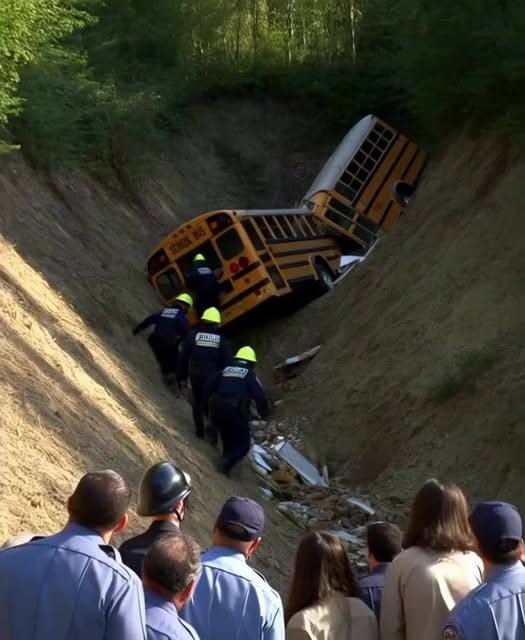The Heartbreaking Legacy of the Karatu School Bus Tragedy
Eight years have elapsed since Tanzania was struck by a heart-wrenching tragedy that forever altered the fabric of its society—the Karatu school bus accident. On May 6, 2017, a day anticipated with excitement for many students turned into a nightmare, resulting in the tragic loss of 32 young lives, two devoted teachers, and the bus driver. This event, marked by its profound impact on families and communities, stands as a solemn reminder of vulnerability and the fragility of life.
The students, all participants in the Lucky Vincent Primary School in Arusha, were en route to take a mock national examination—an important milestone that signified hope, growth, and the promise of a brighter future. This examination was not merely an academic exercise; it represented a gateway to opportunities for further education and personal development. Many of these students had spent months preparing, dreaming of excelling and making their families proud. However, as the school bus navigated a treacherous, rain-lashed mountain road in the Karatu district, disaster struck. The bus lost traction, veered off the narrow roadway, and descended into a perilous ravine, sealing the fate of those on board. This horrific incident reverberated through the nation, casting a pall of sorrow and disbelief over Tanzanian society and leaving an indelible mark on the national psyche.
In the wake of the accident, as news spread like wildfire, the nation collectively mourned. News outlets interrupted regular programming, broadcasting updates and features that highlighted the tragedy’s gravity. President John Magufuli, in a show of solidarity, declared a national period of mourning, urging all Tanzanians to come together in support of the grieving families. Community vigils, memorial services, and prayer gatherings emerged across the country, symbolizing a united front in a time of profound sorrow. These gatherings provided a space for catharsis and reflection, allowing individuals to share their grief and offer support to one another in a community profoundly affected by loss.
In what seemed an impossible twist of fate, three children—Wilson, Sadia, and Doreen—survived the catastrophic accident despite enduring severe injuries. Their miraculous recovery journey became a beacon of hope during an overwhelmingly dark time. Medical teams coordinated to transfer them to the United States for specialized care, where they faced the arduous task of rehabilitation. Their resilience in overcoming the odds inspired countless others, serving as a poignant reminder of the power of hope and the indomitable spirit of youth. Their stories, shared in various media outlets, evoked a sense of collective compassion and underscored the importance of community support in moments of crisis.
The horrific events surrounding the Karatu tragedy ignited a nationwide discourse on the critical issue of school transportation safety—an ever-pressing concern that had long lingered in the shadows. In response to this tragedy, the Tanzanian government vowed to enact stringent safety measures aimed at safeguarding children during their commutes. These initiatives included the introduction of rigorous regulations for school buses, improving road infrastructure, particularly in rural and mountainous regions, and enforcing comprehensive training and licensing programs for drivers responsible for transporting students. The government also sought to raise public awareness about the need for safe travel practices, emphasizing both the responsibilities of transport operators and the rights of children as passengers.
Local communities and advocacy groups also stepped up, championing the cause of safer travel for children. They launched educational workshops and safety awareness campaigns to equip parents, teachers, and drivers with the necessary tools and knowledge to protect young passengers. These efforts illustrate a national commitment to preventing future tragedies, fostering a culture of vigilance that prioritizes children’s safety on their daily journeys. Schools began implementing safety drills and employing safety officers who monitored transportation conditions, ensuring that children were transported securely to and from school. The involvement of non-governmental organizations (NGOs) added another layer of advocacy, as they lobbied for policy changes and worked directly with communities to promote safer transportation options.
As the years pass, the memory of the Karatu accident continues to be etched into the national consciousness—not just as a tragedy, but as a testament to the lives of those who were lost. At the memorial site near Karatu, people gather to pay their respects, laying flowers and speaking the names of the deceased with love and reverence. Families, friends, and former classmates cherish their memories, keeping alive the laughter, dreams, and unique personalities of the children who were taken too soon. They are forever remembered as more than just victims; they were beloved individuals whose lives held immense value. Stories of their aspirations, talents, and achievements serve as powerful reminders of the potential that was lost that fateful day.
Reflecting on the eight years since this devastating event, it becomes evident that although the pain of loss remains palpable, there is also a shared determination to honor those who died by advocating for a safer future for all children in Tanzania. The collective grief has softened with time, yet it serves as a relentless reminder of the need for improved infrastructure, enhanced safety policies, and community vigilance. Grassroots movements continue to arise, urging the government to allocate more resources to ensuring safe transportation for children, as parents and communities refuse to let the memory of the victims fade into obscurity. As Tanzania strides forward, the legacy of Karatu inspires a spirit of resilience and compassion, driving a commitment to protect the vulnerable, especially the youth.
Annually, the anniversary of the Karatu accident is observed nationwide, marked by moments of silence and remembrance ceremonies. These observances reinforce a mutual pledge among Tanzanians to never forget this tragedy and to work diligently to ensure that similar heartbreak does not recur. Schools hold special assemblies, inviting parents and community leaders to speak on the importance of safety, while local media shares stories of those lost and the ongoing efforts to improve transportation safety. The story of Karatu resonates deeply within the hearts of many, serving as a powerful reminder of the fragility of life and the urgent necessity to safeguard the future of children. This commitment to remembrance and action ensures that the legacy of the Karatu tragedy will continue to foster a safer environment for generations to come.

















